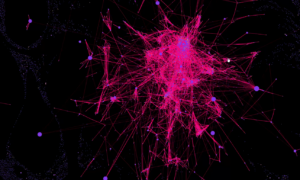The purpose of this post is to present seven assertions about quantum computing that arose in my research. I welcome questions and remarks and will gladly clarify or elaborate on them.
Four Predictions About Quantum Computation in General
-
Inherent Noise in Two-Qubit Gates
Two-qubit gates will inherently be noisy. Engineering efforts to reduce this noise will encounter a barrier that prevents achieving the quality required for quantum fault-tolerance. -
Correlated Errors in Cat States
Cat states will inevitably experience substantially correlated errors. (A cat state represents entanglement between two qubits.) -
Limitations of NISQ Devices
Samples generated from boson sampling and quantum computers in the intermediate scale correspond to a primitive computational complexity class called LDP (low degree polynomials). As a result, they are incapable of demonstrating quantum supremacy or achieving high-quality quantum error-correction. This argument imposes a computational-complexity-based limit on the engineering efforts to reduce errors in NISQ (Noisy Intermediate-Scale Quantum) devices. -
Noise Sensitivity in Small Quantum Circuits
The empirical distributions of samples obtained from 12-qubit random circuits inherently contain a significant noise-sensitive component. This means that the empirical distributions are necessarily non-stationary (changing over time), and are inherently unpredictable.
Three Assertions About Google’s 2019 Quantum Supremacy Experiment
-
Statistical Unreasonableness in Fidelity Predictions
Predictions based on the fidelities (error-rates) of individual components of Google’s experiment were successful in a statistically unreasonable manner. -
Lack of Separation Between Calibration and Sampling Stages
Contrary to Google’s description of their experiment, there was no strict separation between the calibration stage and the stage of generating samples from large quantum circuits. -
Lack of Transparency in Crucial Data
Google has not provided essential data required to rigorously scrutinize their experiment. Specifically:- Over five years after the experiment, the team has not shared the individual two-qubit gate fidelities. This lack of disclosure is unreasonable.
- Details about the calibration stage remain concealed under commercial secrecy.
Assertions (1)-(4) form part of my broader argument against quantum computers (see this post for a brief description and this paper); Assertion (5)-(7) are part of the case against the Google 2019 quantum supremacy experiment (see this post for a summary and links to my relevant papers).
I believe all seven assertions are correct; however, they are not definitive. For the four assertions in the first part, the arguments are partially heuristic, and I do not anticipate stronger claims in the form of a mathematical theorem proving that quantum computers are impossible, nor a derivation of their impossibility from an agreed-upon physical principle. Additionally, in both parts, there are several counterarguments that warrant consideration.




Leave a comment